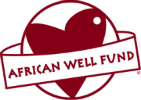In 2006 and 2007, the African Well Fund sponsored its first project in
Gokwe, Midlands Province, Zimbabwe. Two wards of the district’s 30 were
served, providing over 8000 villagers with access to clean water, as
well as two schools with sanitation facilities.
However, water access in Gokwe South as a whole remained desperately insufficient.
Over a decade of recurrent drought stretched already overtaxed water
points, leading to outright failure of many boreholes and consistent
breakdowns of others. In addition, the country’s economic crisis was
coming to a head as hyper-inflation took hold, making it nearly
impossible for the government at any level to establish new water points
or maintain existing ones.
The AWF’s second project in Gokwe South sought to provide water access
to over 11,000 residents of another ward in the district as well as to
improve sanitation facilities for 300 pupils. While water availability
had not historically been at issue in the targeted ward, its water
sources were unprotected, leaving the communities vulnerable to water
borne diseases such as cholera, which was responsible for 79 deaths in
the district.
As before, AWF partner Africare sought to work with the community to
complete the project, with ownership of the water points belonging to
those served by them. Unfortunately, a worsening economic and political
climate brought new challenges which had to be addressed before work
could be completed.
With inflation at over a million percent, many members of the community
were unable to work on new construction, instead being forced to search
for increasingly scarce food. This same scarcity also affected the
search for well materials, with most having to be imported from South
Africa. In addition, work by NGOs was halted until national elections
were completed in August 2008.
Despite these set-backs, the project was able to move ahead as the
political situation cleared. Simbe Primary School was chosen as the
beneficiary of improved latrines. In return, 20 students of the school
were given scholarships for their primary education. Eight new wells
were constructed or upgraded in targeted villages, providing more than
1,140 people with protected, safe sources for water.
 These twenty school children will now have their school fees paid.
These twenty school children will now have their school fees paid.




